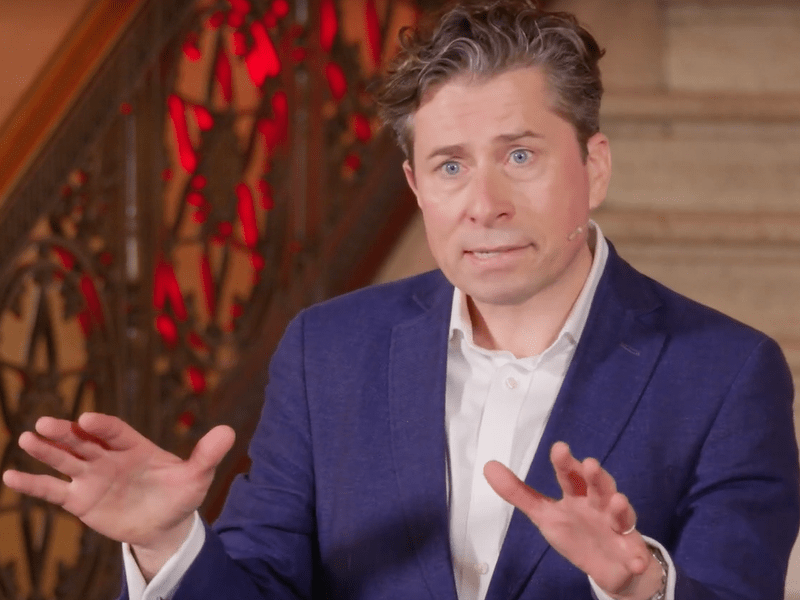According to a projection underscored by Tom Fletcher, the newly appointed UN Emergency Relief Coordinator and head of the Office for the Coordination of Humanitarian Affairs (OCHA), a staggering 305 million people worldwide will require life-saving assistance in 2025.
Unveiling the Global Humanitarian Overview 2025, Fletcher warned, “The world is on fire … We are dealing with a polycrisis right now globally, and it is the most vulnerable people in the world who are paying the price.”
This complex web of crises, driven by escalating conflicts, prolonged instability, and the worsening climate crisis, has prompted OCHA to launch a $47.4 billion appeal to assist those most in need across more than 30 countries and nine refugee-hosting regions.
Despite the ambitious target, OCHA estimates that only 190 million people — barely two-thirds of those in need — are likely to receive aid.
The challenges faced by humanitarian workers are starkly illustrated in countries like the Democratic Republic of the Congo (DRC), where decades of violence have left communities in perpetual need.
“In DRC, as with all these conflicts, we are ready to do more, it’s our mission to do more. My people are desperate to get out there and deliver because they really are on the frontline.”
Tom Fletcher
However, the lack of resources and growing indifference from those with the power to enact change complicates these efforts. Fletcher’s impassioned plea extended to global leaders, urging them to challenge “this era of impunity and indifference.”
As the new head of OCHA, Fletcher is determined to rally support from governments and forge new partnerships. His goal is to reframe the humanitarian narrative, ensuring it resonates with the global public. Drawing on his extensive diplomatic experience in conflict zones, including Kenya, Lebanon, and Northern Ireland, Fletcher pledged to “bash down doors” to secure aid and solidarity for the world’s most vulnerable.
Humanitarian crises are increasingly shaped by the relentless duration and intensity of conflicts. The average conflict now spans a decade, with devastating consequences for civilians caught in the crossfire. Fletcher highlighted Gaza, Sudan, and Ukraine as emblematic of these crises, where “this disregard of international law” obstructs aid delivery and exacerbates suffering.
Compounding these issues is the record number of forcibly displaced individuals—123 million globally — many of whom are children. Fletcher noted, “One in every five children is living in a conflict zone right now,” emphasizing the urgency of addressing violations against vulnerable populations.

Climate Change as a Crisis Multiplier
The climate crisis is now inextricably linked to humanitarian needs, exacerbating already dire situations in conflict zones.
Fletcher described the convergence of these drivers as a critical challenge, stating, “The dread I have is that those two huge drivers of need are now combining. And they’re often combining in areas that have already suffered huge levels of poverty and inequality.”
The catastrophic effects of climate change, from severe droughts to extreme flooding, have left impoverished communities struggling to cope. This intersection of crises demands a coordinated global response to build resilience and address underlying inequalities.
Ensuring unhindered access to humanitarian aid remains a priority for Fletcher. He described the daily struggles faced by field teams navigating bureaucratic and physical barriers to deliver essential supplies. “Our job is to get the humanitarian support through, checkpoint by checkpoint, border by border,” he explained. In regions like Sudan, this often means negotiating “truck by truck” to ensure aid reaches those in need.
The upcoming humanitarian appeal also seeks to bolster respect for international humanitarian law.
Fletcher stressed the importance of protecting both civilians and aid workers, who have died in record numbers this year due to the ferocity of conflicts in Gaza, Ukraine, Sudan, and Syria. He lamented the “wilful neglect of international humanitarian law” that has left communities vulnerable and humanitarian efforts under siege.
Fletcher’s remarks come at a pivotal moment, with significant national and presidential elections looming. While acknowledging the potential challenges posed by shifting political landscapes, he expressed confidence in the capacity to build support, stating, “I don’t believe that we can’t make that case to them; I don’t believe that there isn’t compassion in these governments which are getting elected.”
As such, the launch of the Global Humanitarian Overview 2025 in Geneva, Kuwait, and Nairobi serves as a rallying cry for the international community to rise above indifference and act decisively to alleviate the suffering of millions.
READ ALSO: Global Shifts Add Intrigue to Ghana’s 2024 Elections




















